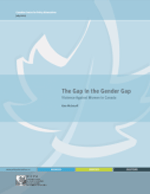Canada
Published on Thu, 2014-06-05 11:24
As the Millennium Development Goals (MDGs) reach their end date in 2015, there is broad consensus that the development agenda which replaces them has to be universal. Whereas the MDGs applied to developing countries only, the post-2015 development agenda will apply to all countries. To support the implementation and measurement of the post-2015 development goals, a "data revolution" has been called for that will enable governments and policymakers to better track development progress and give citizens the information they need to demand more from their governments and hold them to account. To respond to this, The Centre for Policy Dialogue (CPD), The North-South Institute (NSI) and Southern Voice on Post-MDG International Development Goals (Southern Voice), have launched the "Post-2015 Data Test: Unpacking the Data Revolution at the Country Level", an initiative that examines how the universal post-2015 development agenda can be applied and measured across a variety of country contexts. |
Published on Thu, 2014-05-15 09:21
The participants in the civil society strategy meeting on monitoring and accountability organized by Social Watch last february in Montevideo were asked about how they personally work and relate with the huge task of making the powerful accountable. Here is what they said: |
Published on Thu, 2013-12-12 05:53
The roles and responsibilities of unions in Canada have come under renewed scrutiny. According to CCPA, Social Watch member in Canada, provincial and federal government hostility towards organized resistance to current policies is intensifying through heated rhetoric and legislative trial balloons. Much of this is facilitated by the current economic insecurity which reinforces individualistic attitudes and often results in resentment directed at those who have it less bad; a general lack of awareness of how much, exactly, society owes to the victories that labour unions have won for all workers and their families—not to mention a lack of understanding of the rules by which unions operate; and those in positions of power growing evermore eager to use the tools at their disposal (corporate or legislative) to challenge the rights of unions to freely engage in the collective bargaining process to improve the lot of the workers they represent. |
Published on Mon, 2013-09-30 20:08
There are many ways to tell a story. For Trish Hennessy, Ontario director at the Canadian Centre for Policy Alternatives, one way is to look at the most searched word annually for the on-line Mirriam-Webster dictionary. Speaking at the Whitby Courthouse Theatre to a group of Durham-region New Democrats, Hennessy noted that in 2010 the most searched word was “austerity.” A year later it was “pragmatism.” In 2012 there was a tie between “socialism” and “capitalism. Clearly something is shifting,” she said. Many young people are being left out of the post-recession recovery and are now questioning the economic and political system that is denying them their place in society. |
Published on Wed, 2013-07-24 22:00
A study released and authored by CCPA research associate and member of the Coordinating Committee of Social Watch Kate McInturff, says that progress on ending violence against women in Canada is stalled by the absence of a coherent national policy and consistent information about the levels of that violence. “The difficulty of collecting data about violence against women has been a barrier to progress in ending that violence,” says the study’s author Kate McInturff. “However, the data that does exist tells us three things very clearly: this problem is big, it comes at a high cost, and we are making little or no progress in putting a stop to it.” |
Published on Fri, 2013-03-08 00:03
Canada’s economic policy continues to take reduction of the debt and deficit as its primary end. The means to this end include cuts to social infrastructure spending, public sector employment and the health and welfare institutions that used to put Canada near the top of most international measures of well-being. Under cover of deficit reduction, the Government of Canada continues to withdraw funding from the civil society organizations and research institutions that measure the effectiveness of those government policies and provide alternatives to them. The impacts of those cuts are beginning to become evident as income inequality grows. On the international stage, Canada has championed austerity measures for countries facing economic crisis, Canadian foreign aid has been in decline while the Government's criticism of multi-lateral institutions for international cooperation increases. If market conditions were ever to close the gap in Canada, this would have been the time. Social assistance rates have remained virtually unchanged across most of Canada. Most social assistance incomes in Canada remain well below the low income cut-off rate. The overall poverty rate in Canada is 9%, however, poverty rates continue to disproportionately affect women, Aboriginal peoples, and people with disabilities. For example, one in three Aboriginal and racialized people in Canada live in poverty. One in four people with disabilities, immigrants, and female single-parents in Canada live in poverty. Across all categories rates of poverty are higher for women than for men. |
|
Canada’s economic policy continues to take reduction of the debt and deficit as its primary end. The means to this end include cuts to social infrastructure spending, public sector employment and the health and welfare institutions that used to put Canada near the top of most international measures of well-being. Under cover of deficit reduction, the Government of Canada continues to withdraw funding from the civil society organizations and research institutions that measure the effectiveness of those government policies and provide alternatives to them. On the international stage, Canada has championed austerity measures for countries facing economic crisis, Canadian foreign aid has been in decline while the Government's criticism of multi-lateral institutions for international cooperation increases.
|
Published on Wed, 2012-11-21 10:42
The concentration of power in the corporate sector is perpetuating income inequality trends in Canada, according to a report published by the Canadian Centre for Policy Alternatives (CCPA, a member organization of Social Watch). The study, “A Shrinking Universe: How Concentrated Corporate Power is Shaping Income Inequality in Canada”, links the rise of the richest Canadians with a shift toward more concentrated power within the country’s largest firms. |
Published on Thu, 2012-11-08 15:28
As the federal government of Canada continues to move forward towards the Comprehensive Economic Trade Agreement (CETA) with the European Union, a new research produced by the Nova Scotian provincial office of the Canadian Center for Policy Alternatives (CCPA) finds that the benefits are being oversold while the costs and consequences are being minimized and even ignored. |
Published on Wed, 2012-10-31 13:19
The province of Saskatchewan’s public liquor retail system is superior to both Alberta and British Columbia’s private scheme in terms of price, revenue generation and mitigation of social harm, concluded in a new report the Saskatchewan office of the Canadian Centre for Policy Alternatives (CCPA, one of the focal points of Social Watch in that North American country) and the Parkland Institute. |












